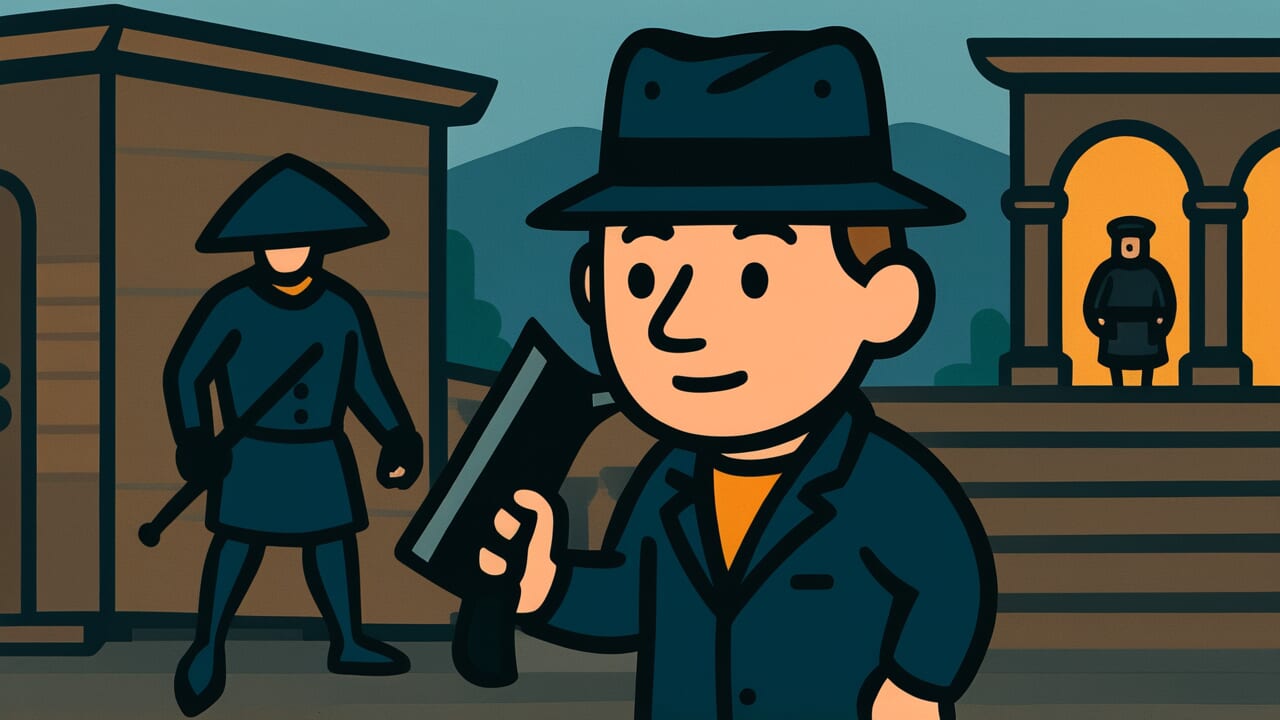How to Read “Even thieves have honor”
Nusubito ni mo jingi
Meaning of “Even thieves have honor”
“Even thieves have honor” means that even criminals and bad people have their own code of conduct and sense of duty. Even those who commit theft follow certain rules and keep their promises within their own group.
This proverb is used in two main situations. First, it points out that even people doing bad things have their own set of rules. Second, it serves as a somewhat ironic observation that all humans retain some minimum sense of morality and humanity.
In modern times, this saying is used to describe how antisocial groups and corrupt organizations have internal codes. However, this doesn’t justify their wrongdoing at all.
Rather, it shows the contradictory nature of humans. No matter the situation, people cannot completely separate themselves from morality.
Origin and Etymology
The exact origin of this proverb has several theories. However, it was already widely used during the Edo period. The word “jingi” originally comes from Confucianism and represents the most important virtues.
“Jin” means compassion and caring for others. “Gi” means righteous principles and proper conduct.
What’s interesting is why “thieves” who commit crimes became connected with “jingi,” the highest moral virtue. This expression likely came from observations of townspeople’s society during the Edo period.
Back then, thieves had their own unwritten rules among themselves. They wouldn’t betray their companions, avoided unnecessary violence, and didn’t steal from the weak.
The background of this expression shows deep insight into human society. Even people living outside social norms cannot live in complete chaos.
As long as people live in groups, they cannot exist without some rules and trust. Our ancestors understood this essential truth about human nature.
By combining the seemingly contradictory words “thieves” and “honor,” they expressed this truth. While ironic, this proverb shows profound understanding of humanity.
Usage Examples
- That fraud group apparently had strict internal rules, showing that even thieves have honor
- Even in conflicts between criminal organizations, there was an unspoken agreement not to involve ordinary citizens—even thieves have honor
Universal Wisdom
The proverb “Even thieves have honor” brilliantly captures the fundamental contradiction and complexity of human existence. Why do even criminals have rules they must follow?
The answer is that humans are essentially social creatures. No matter how antisocial a lifestyle someone chooses, they cannot live in complete isolation.
Even thieves need companions. To cooperate with companions, they need trust. To build trust, they must keep promises and act with integrity.
In other words, even criminals cannot exist without some moral framework because they are still human.
This proverb reveals a truth: humans cannot be understood through simple good-versus-evil thinking. Even the worst person has a trace of humanity. Even the most virtuous person has weaknesses and contradictions.
People cannot become completely evil or completely good. We are incomplete, contradictory beings.
Our ancestors calmly observed this human complexity. They didn’t just speak of moral ideals. They watched how real people actually live and found universal laws there.
This proverb contains deep understanding of humanity, a certain resignation, and at the same time, hope. The fact that all humans retain minimum humanity is also proof of trust in human existence itself.
When AI Hears This
The emergence of honor among thieves is actually mathematically inevitable. Game theory’s famous “Prisoner’s Dilemma” experiment shows that in one-time transactions, betrayal brings the most profit.
But in “repeated games” with the same partner, the story changes completely.
Political scientist Robert Axelrod ran computer simulations competing various strategies. The results were surprising. The most successful was a simple rule called “tit for tat.”
This strategy works as follows: cooperate first, if the opponent betrays then betray back next time, if the opponent returns to cooperation then you also return to cooperation. Simply mirror the opponent’s moves.
This strategy defeated both always-betray strategies and complex strategies one after another.
The world of thieves perfectly fits this theory. Criminals cannot rely on police, so long-term trust with companions determines life and death.
Betraying once might bring big money, but afterward nobody will work with you. The danger of retaliation also increases. That’s why the cooperative norm of “honor” naturally emerges.
What’s fascinating is that cooperation arises not from moral conscience but from pure cost-benefit calculation. Precisely because there’s no law, invisible rules of reputation and mutual benefit work powerfully.
This can be seen as a living laboratory showing the origins of cooperation in human society.
Lessons for Today
What this proverb teaches modern people is the danger of simply judging humans as good or evil.
In daily life, we tend to easily classify people as “good” or “bad.” But real humans aren’t that simple.
Everyone carries contradictions and shows different faces depending on the situation. People who do bad things have their circumstances. People who do good things have their weaknesses.
This understanding is especially important in modern society. On social media, people are harshly criticized for a single mistake and labeled as “evil.”
But remember “Even thieves have honor.” Even thieves, considered the worst, have things they protect. Then surely ordinary people who make mistakes deserve a chance to recover.
At the same time, this proverb is also a warning. Organizations and people who seem right on the surface may be different inside.
Whether those who speak of “honor” are truly trustworthy requires careful judgment.
What matters is tolerance to accept human complexity and simultaneously insight to see through to the essence. With both of these, you can understand people more deeply and build richer human relationships.



Comments